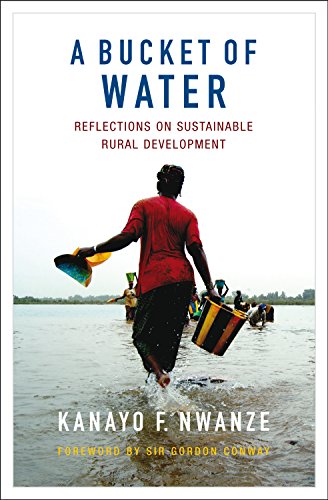If you're still stuck at home and looking for things to do, I bring to your attention the book "A Bucket of Water: Reflections on Sustainable Rural Development" by Kanayo F. Nwanze.
I have to begin by saying honestly, if you have already read a lot of books on development, you won't find new and surprising ideas or techniques in this book. However, there are many encouraging stories in each chapter about the ways peoples' lives have been improved through development work around the world. It looks at the importance of agriculture in development, generally, and in achieving the Sustainable Development Goals, specifically.
As I read, I was encouraged to see how changes in different communities were brought about through the same kind of work World Renew is doing. I had heard stories from people impacted through World Renew's work which were very similar to what is described in the book as effective. For example, in the area of working towards official land ownership and training people on how to advocate for themselves with the government. This is especially important because large-scale change cannot happen without governments taking responsibility for helping their own people - particularly investing in good infrastructure and agriculture.
The book discusses the importance of focusing on people over projects - planning projects with, not for, the people it's meant to help - and using creative, local solutions to problems. The author also mentions how sometimes innovations which were discarded in the past can be brought back and found to be useful now. It made me think of how helpful a fireless cooker is in Uganda today, something which existed over a hundred years ago in Europe and North America, but has since been forgotten.
An overall theme of the book is how development in the area of small-scale agriculture is so important for addressing many of the problems related to poverty in the world. The author looks at how improving the lives of small-scale farmers helps in bringing stability and peace in areas of conflict. He points out the ways in which treating small farms as the businesses they are will improve the economies of countries. Agriculture can also be developed to provide a desirable, productive occupation for the large populations of young people in many countries such as those in Sub-Saharan Africa. And of course, when people grow a variety of crops on their small farms and eat what they grow, this can help improve nutrition and in doing so, raise productivity in the people who are now healthier.
All in all, there is hope! Read this book if you want to hear more specific stories of empowerment and transformation from around the world.

No comments:
Post a Comment